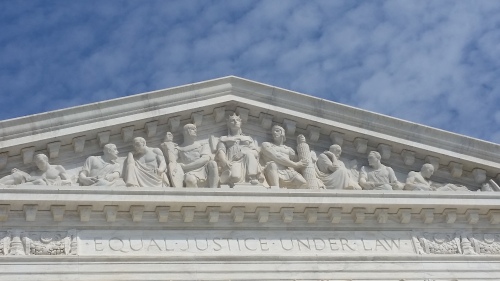
2019 was one hell of a year for judicial confirmations. Freed from the time-consuming schedule of a Supreme Court nomination, the Senate plowed through over 100 judicial confirmations, dramatically reshaping both the courts of appeals and district courts.
Nominations and Confirmations
This year, the Senate confirmed 20 appellate judges and 80 district court judges (as well as two judges to the Court of International trade). As such, President Trump has had 187 confirmations as of the third year of his presidency. In comparison, President Obama saw 124 confirmations by the end of the third year of his presidency, President Bush saw 168, and President Clinton saw 175.
Failed Nominations
The expanded Republican majority in the Senate from the 2018 elections and the frequent absences of Democratic senators running for President have allowed Republicans to push through many nominees on narrow party-line votes. As such, the Administration has been relatively successful at pushing through its nominees, even controversial ones.
Nonetheless, a handful of Trump nominees have been blocked from confirmation in 2019. Namely, judicial nominees John O’Connor and Maureen Ohlhausen were not renominated at the beginning of the 116th Congress. Furthermore, the nomination of Michael Bogren to the Western District of Michigan was withdrawn in the face of Republican opposition (similar opposition has stalled the nomination of Judge Halil Ozerden to the Fifth Circuit). Additionally, Judge Thomas Marcelle, nominated for the U.S. District Court for the Northern District of New York, withdrew due to failure to get blue slips from Sen. Kirsten Gillibrand.
Demographics of Confirmed Nominees
Let’s take a look at demographics of the 102 confirmed Trump appointees this year.
Age
In the past Congress, the average age of Trump’s appointees ranged between 50-51, in line with previous presidents. This Congress, the average age of the Trump appointees is slightly younger at 49 years of age, which is still not too far from the presidential average.
The oldest Trump appointee tapped for the federal bench this year is Judge John Milton Younge, a Democrat who was first nominated to the federal bench by President Obama but blocked by Republicans. Younge was 64 when confirmed. The youngest was Judge Allison Rushing, who was just 36 when she was confirmed to the Fourth Circuit.
Race
Trump’s judicial confirmations continue to be overwhelmingly white, although the ratio has improved significantly since the previous congress. Twenty of the 100 judges confirmed this Congress were non-white: seven Asian; six Hispanic; and seven African American judges respectively.
Gender
Of the 100 nominees confirmed this year, 26 are female: 5 appellate appointees and 21 district court appointees. These numbers (26% female) are slightly better than the previous congress, where the appointees were around 22% female. However, they still are lower than the 42% female figure President Obama managed to hit.
LGBTQ Identity
This year, the Senate confirmed two nominees who identify as members of the LGBTQ community: Judge Mary Rowland to the U.S. District Court for the Northern District of Illinois; and Patrick Bumatay to the U.S. Court of Appeals for the Ninth Circuit.
Looking Ahead
Largely due to rules changes muscled through by the enlarged Republican majority, President Trump has succeeded in dramatically reshaping the federal bench in 2019. However, his success has reduced the number of nominees who would be expected to be confirmed next year. When the Senate recessed, it left just five pending judicial nominees on the Senate floor. Nonetheless, while all of Washington will spend much time absorbed in an impeachment fight next year, the senate will likely continue its processing of judicial nominees.





